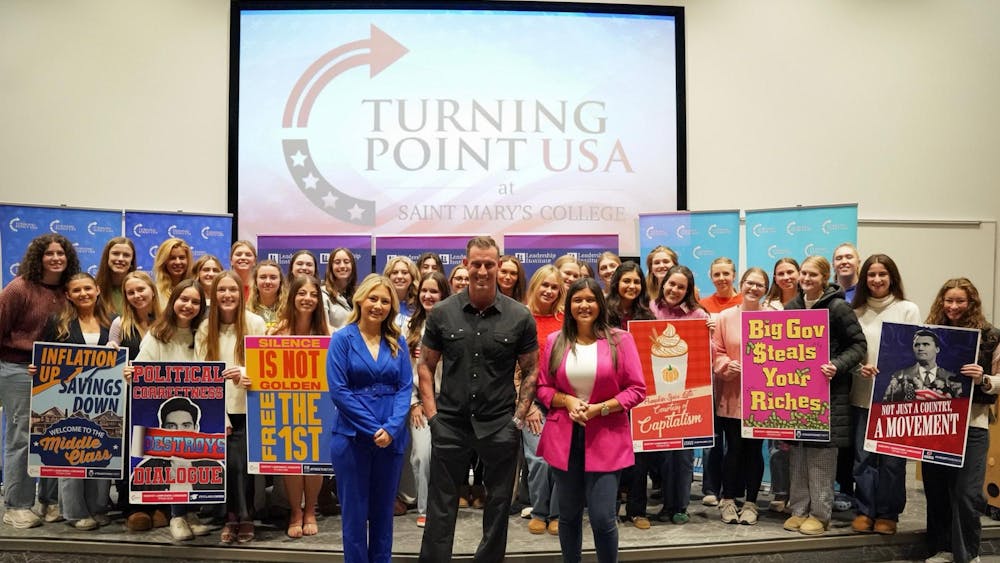From the Basilica on God Quad to the chapels in every residence hall to the crucifixes in every classroom, the University's Catholic identity is not easily missed. Not all Notre Dame students, however, share that identity.
Last year, senior Stephen Love and a few of his friends decided to form a club for "Atheist, Agnostic and Questioning Students" (AAQS).
Love said he felt the number of students who don't prescribe to organized religion warranted an official campus group.
"I think the [nonbeliever population] is vastly underestimated," Love said. "I think people would be really surprised by how many students are interested."
The Student Activities Office (SAO) denied the club official recognition last year, citing a contradiction between Notre Dame's mission and the intended purpose of the club.
"A club's purpose ‘must be consistent with the University's mission,'" the letter stated. "No organization, or member of any organization on behalf of the organization, may encourage or participate in any activity which contravenes the mission of the University or the moral teaching of the Catholic Church."
Love said the given reasoning was inconsistent with the University's policy toward other, existing clubs.
"An easy rebuttal to that would be that we have a Jewish club, a Muslim club," he said. "The only difference between us and them is that we don't assume the existence of the Judeo-Christian God. We just thought if those clubs were allowed, we would also be allowed."
In the club's current proposed constitution, the mission is specified as "to provide a forum for students to discuss philosophical, scientific, religious and political topics free from [in]tolerance."
The constitution said the club would create this venue by holding regular discussions, inviting guest speakers to campus to participate in academic conferences and forums.
Love said official recognition is important because it would provide funding to make this program a reality.
"We want to form an official club so we actually have official meeting rooms and we'd get some University funding so we could bring in guest speakers to come in and spur debate," he said.
Love said this dialogue would be open to the religious as well as nonreligious students on campus.
"We technically have a secular agenda, but we want people from all different faiths to come and discuss," he said. "That's how you advance your ideas, by having them challenged."
In addition to the problems with the club's mission statement, SAO's rejection letter stated that AAQS had failed to receive the appropriate departmental approval. According to SAO, the concerned department was Campus Ministry.
"For this proposed club, the approval of Campus Ministry is necessary to be considered a club," the letter stated. "Upon review of the materials submitted, Campus Ministry indicated they would not approve this club."
Love said he disagreed with the department designation.
"I don't know where they got that, that Campus Ministry is the appropriate department," he said.
Love said, despite being denied club status, AAQS has been meeting independently and growing rapidly since last year.
"We've been meeting underground this whole time," he said. "When it started it was just a couple of friends and I, but within two or three weeks, just by word of mouth, it went from five to 10 then 30 to 40, and we haven't even made an active effort besides one small advertisement in The Observer ... Now we have 40 or 50 on the email list."
With an established "unofficial" membership, would-be club vice president Love and president Brian Robillard reapplied for club status last month. The new application has received approval from the Philosophy Department and is awaiting SAO review.
While Love is hopeful about the reapplication, he understands the University is within its rights to reject the club, for whatever reason.
"We understand the University is a private, Catholic institution, so we're not demanding anything ... we don't have the right. We understand it's within their power to do what they please," he said. "We would just like to see the University give nonsectarian students a venue."
Despite this being Love's last year to personally work toward official recognition for the club, he is confident the effort will continue after he graduates.
"If we get rejected, we have enough underclassmen who will continue to apply and make changes based off what SAO suggests," he said. "We're willing to do whatever it takes to become an official club, within reason."
SAO was not available to comment on the matter.









